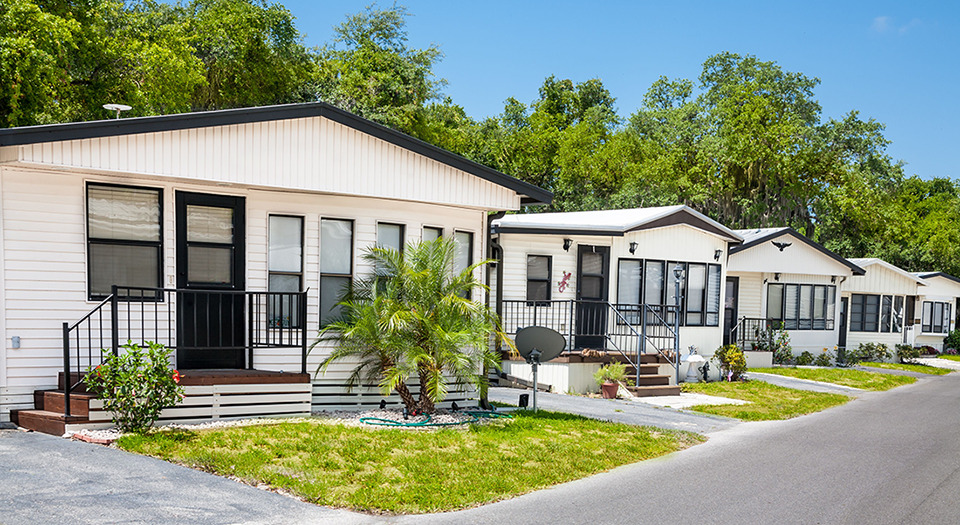Frequently Asked Questions
Welcome to the most frequently asked questions that we receive by our members.
Click on the question to reveal the answer and if you have a question that isn’t answered below, then please email your question to info@amho.com.au and we will answer it as quickly as possible.
How do I prove I own my home?
As you don’t own the land on which it is sited, there is no title deed and your home is classed as a chattel. Your proof of ownership is the receipt you received following payment to the park owner. This receipt is an important record and should be treated accordingly.
We want to sell our home, but the park manager said we must go through them and cannot have an outside agent. Also, they have informed us we cannot put up a for sale sign on our home. Can you advise us about our rights?
First of all, you should look at your site agreement. Does it specifically state that you can only list your home through the park manager? If so, then you must comply. If not, then you, as the homeowner, have a choice about who you appoint to sell your home. You should ensure that any agent you appoint is aware of the correct process for the buying and selling of a manufactured home in a residential park.
The Regulatory Services Unit (RSU) of the Department of Housing has a great deal of information about your rights and responsibilities including the selling of your home. Click here for more information.
As far as putting a “for sale” sign on your home, again, you should check your site agreement. Most parks do not allow this. However, there is nothing to stop you putting a sign on the inside of your window. The park owner has no control over what happens inside your home unless the matter relates to complaints of noise or illegal activities.
Is there an ombudsman for residents living in manufactured home villages?
At the present – No.
The appointment of an Independent Ombudsman has been on AMHO’s Agenda since early 2022 because QCAT is not fit for purpose. It can take 2-5 years to hear disputes and QCAT has no power to enforce its rulings.
Therefore, many park owners just ignore or appeal those decisions when a homeowner is successful. Despite the concept of QCAT being that participants can represent themselves in a hearing, park owners use the full might of their legal resources. An Ombudsman who specialises in disputes under the MHRP Act would give binding rulings on all matters relevant to residential parks.
AMHO has lobbied the government since February 2022 for this change and will continue to do so. This forms part of AMHO’s Agenda for 2025.
Our neighbours have built a structure on the fence line for shade, and I am concerned it will affect my fence stability. The park owner says they have permission and will not do anything about my concerns. What can I do?
You should check your site agreement to determine whether your fence is considered infrastructure (owned by the park owner) or forms part of your property.
If the fence is considered infrastructure, then any damage to it or your property as a result of instability caused by the neighbour’s structure, is the responsibility of the park owner. If there is any damage to your home as a result of the instability of the fence caused by the structure, your insurance company will deal any repairs and will follow up with the park owner.
If, according to your site agreement, you are responsible for the integrity of the fence, your concerns should be considered by the park owner (through the park manager). The park manager states that the structure has been approved. You should have been consulted as part of the approval process and are entitled to see the conditions under which approval has been granted.
To have the structure removed, you would need to prove that it can cause instability of the fence, encroaches on your home site or could cause damage to your home. You would need to use the dispute mechanism – Form 11 – which commences with negotiation and mediation – this may be all that is required. However, should no agreement be reached then you would need to lodge the Form 11 with QCAT to seek a decision by the tribunal. You should note that you cannot access fee legal advice through Caxton Legal for a fence dispute.
Recently the spa in our outside park pool stopped working. When we brought this to the attention of the park management, they advised we just had to turn it on and off manually at the power outlet. However, this means clamouring through an uneven garden bed to reach the switch, which is a poor outcome as most of our elderly residents have very poor balance. Three weeks later we contacted the park manager again who has advised it was not important and would be fixed when they had time. As we pay for these facilities in our site fees, what can we do?
The Act specifically states that the park owner must maintain the common areas and
communal facilities (your spa) in a reasonable state of cleanliness and repair and is fit
for use by the homeowner. So, it is important and needs to be repaired as soon as
possible.
The present situation is a falls hazard for residents and the park owner would be liable
for any injuries caused.
You should request, in writing, that the park owner repair the spa so that homeowners
do not need to be climbing through garden beds to access the power outlet. The park
owner has 21 days to respond fully to your request. If your request is not successful,
you should complete and lodge a Form 6 – Remedy to Breach, which gives the park
owner 28 days to complete repairs. If repairs are not completed within this timeframe,
then you should lodge your complaint with QCAT.
Can the park owner change the rules that you have signed up for?
The Park Rules, as outlined in the site agreement, can only be changed if both parties agree. Sections 71 to 86 of the Act states that the park owner may only make rules about the use, enjoyment, control and management of the park, specifically:
- the use and operation of the communal facilities;
- the making and abatement of noise;
- the carrying on of sporting and other recreational activities; and
- the speed limits for motor vehicles; parking of motor vehicles;
- disposal of refuse; keeping of pets.
Once you have signed your site agreement, which includes the existing park rules, there is a process which must be followed in which homeowners are very much involved. In fact, unless a majority of 75% homeowners agree, the rules cannot be changed.
Who do I go to if I believe that the park owner or their agent has breached the Act?
The Regulatory Services Unit (RSU) which is part of the Department of Housing is responsible for ensuring compliance of the Act. This should be your first port of call. Click here to go to the RSU website. Complaints can be made by phone, email or you can write a letter.
You should also contact Caxton Legal to make an appointment to ask about the alleged breach and what you can do about this. Information about accessing legal help can be found on our website.
We want to set up our wills so that family members can inherit our home, is there any reason we cannot do this, and what is involved?
There is no reason why you cannot leave your home to your family. In your will, your home will be handled the same as any asset per your instructions. You should note that site rent and utility fees will continue to be payable until the home is sold, or the site agreement is assigned to your family member.
Maintenance of home. We have issues with the support posts on our home, it is 12 years old and we thought the park owner would have to fix the rust on the steel supports as they are on their land but they say it is our responsibility.
As you own your home, the responsibility for maintenance and repairs is yours. The Act requires a homeowner under a site agreement to under Section 16 (g) to maintain the manufactured home positioned on the site in a reasonable state of cleanliness and repair, and fit to live in.
Can the managers at our park sell our home when they are not a licensed real estate agent?
While some sales staff in residential parks are licensed, many are not. This is not required as they are selling a home, not a property entailing the transfer of land – you rent the land on which your home sits, so basically selling your home is the same as you selling any chattel.
In any case, in Queensland, you can sell your home privately and do not require a license. Whoever you choose to appoint to sell your home you should ensure the agent is aware of the correct process for the buying and selling of a manufactured home in a residential park.
Our Home Owners Committee is not acting in the best interests of the residents and do not convey what they are doing or meet with residents as per our constitution. What can we do?
Home Owners Committees (HOC) in residential parks have an important role to play. They represent the interests of home owners in dealings with the park owner about the day-to-day running of the park, or any complaint or proposal about the operation of the park raised by homeowners.
Section 101 of the Act states that where a constitution has been adopted by a majority of home owners, the HOC must comply with the constitution.
RSU has released a Handbook for Home Owners Committees. This may be useful in your discussions with your HOC about your concerns, while your constitution should state the actions to be taken if homeowners are concerned about the operation of the HOC. If your HOC is incorporated it is legally bound to abide by the Incorporation Rules.
Our home is next to a grassed walkway, over time the land has moved downwards, with cars driving on it, and our home has now subsidence issues. The park manager will not work with us to have this matter addressed and our insurance provider has informed us this is a matter for the builder of the home?
Was the park owner responsible for the earth works in the building the park? You should contact your local government building department to request an inspection as any earthworks would have been part of the development application. Also contact your local government representative and arrange a site visit.
Who was the builder of your home? Depending on when your home was built, the Queensland Building & Construction Commission (QBCC) may be able to assist as there is a structural warranty in place for six years and six months from construction.
You should obtain legal advice about this matter. Caxton Legal (07) 3214 6333 to make an appointment, phone lines open 9am – 5pm Monday to Friday. You will need to provide your name and the full name of the person who is on the other side of your legal matter, as they cannot give you legal advice without this information.
Do we have to pay for the fences around our homes to be maintained and repaired?
You should check your site agreement to determine whether your fence is considered infrastructure (owned by the park owner) or forms part of your property.
If the fence is considered infrastructure, under Section 17 of the Act, the park owner is responsible for ensuring that common areas and communal facilities are in a reasonable state of repair.
If, according to your site agreement, you are responsible for the integrity of the fence, you and your neighbour are responsible jointly for the maintenance and repairs.
I have received a letter stating that I will only be able to pay my site rent by direct debit in future as the office will not accept my cash eftpos payment any longer, but I do not want to give them access to my bank account so they can take money whenever they want. What are my rights?
If you have been paying by cash EFTPOS, and this arrangement is according to your site
agreement, then you do not have to change your payment method. You should write to the park owner stating
that you do not wish to change as the Act states that any changes to your method of payment must be agreed
to by both parties. There are a number of methods to pay your site rent set out in the Act.
Alternatively, you can set up an automatic transfer from your bank account to the park owner’s nominated account which means that the payment transfers electronically, but you do not disclose your account details and they have no access to your account.
Or if you are on a Centrelink pension your rent can be deducted from your pension and paid direct to the park owner by CentrePay using this form
The park owner charges for electricity via an embedded network. What does this mean?
Embedded networks are in common use throughout manufactured home parks in Queensland. Homeowners should always check their account shows their actual reading of usage rather than an estimate and that a cost per unit is provided. If the park owner allows a third party to collect utility payments (typically electricity and water) on their behalf, be aware that under the MHRP Act they are not permitted to charge you an extra fee for this service, this must be paid by the park owner.



